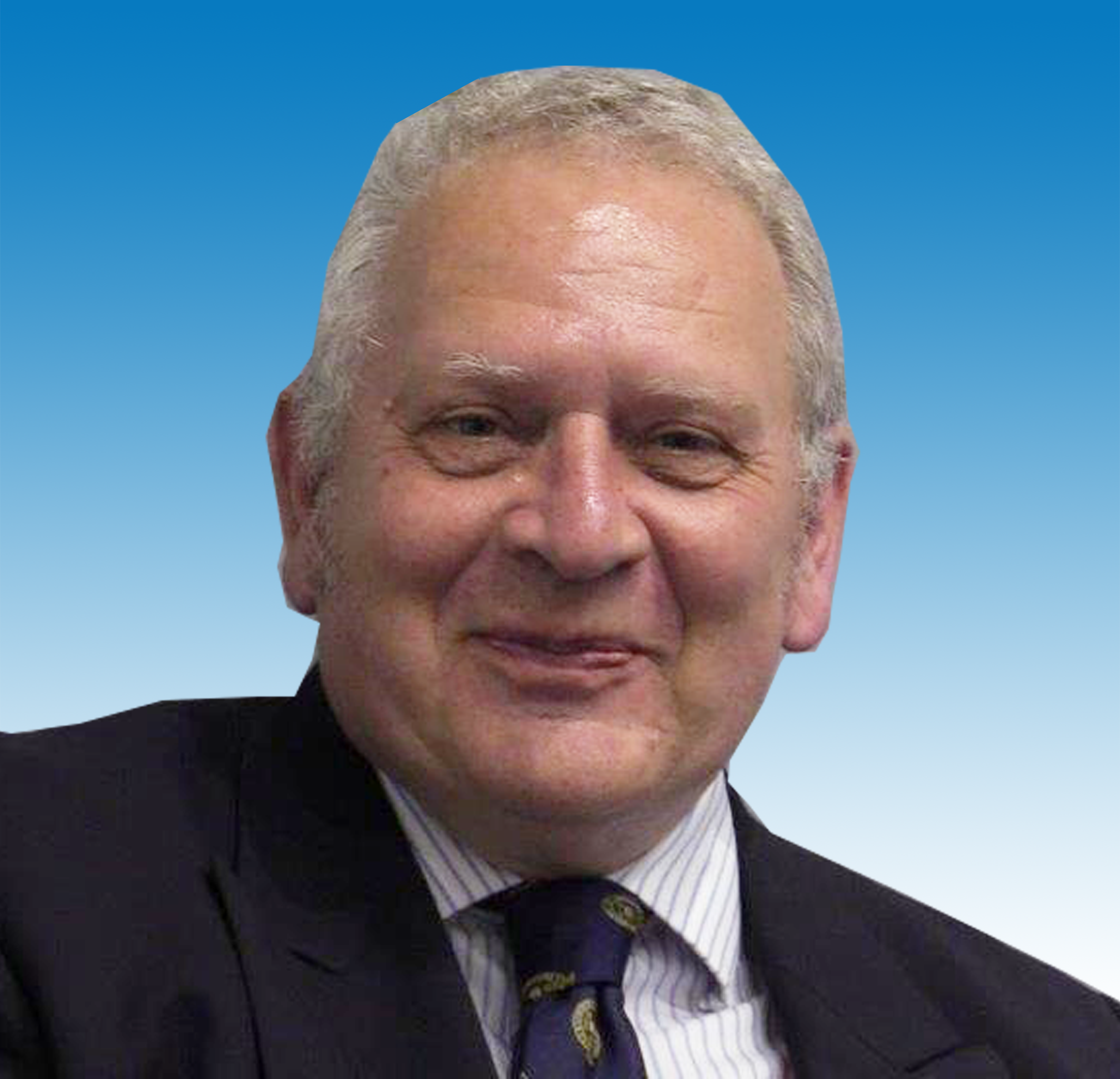Accountability report
The report below was prepared by Sarah Connery, Chief Executive and Accounting Office and is dated 16 June 2022.
Board of Directors
The Trust Board consists of the Chair, executive and non-executive directors, including the Chief Executive. They are collectively responsible for the performance of the Trust.
The role of the Trust’s Board of Directors is to consider strategic, managerial and performance issues facing the Trust. Directors are accountable for meeting national standards, performance targets, and governance and financial targets.
The executive directors are responsible for the day-to-day running of the organisation working with the non-executive directors to translate the Trust’s strategic vision into operational practice.
The non-executive directors provide an independent view on strategic issues, performance, key appointments and hold the executive directors to account.
The Trust Board is made up of the Chair, five non-executive directors, the Chief Executive and five executive directors. In order to maintain stability the overall numbers can be increased slightly at time of transition. During 2021/22 a small number of changes occurred and are shown in the directors’ profiles on the next page.
The Board’s business is conducted through eight meetings a year of the Board of Directors, which are held in public. The minutes and other papers from these meetings are published on the Trust’s website. In addition, the Board has a range of Committees to provide further scrutiny and assurance. These Committees were reviewed and amended in 2020/21. A review of their terms of reference in September 2021 determined they remained fit for purpose; details are included in the governance section of this annual report.
The people who served on the Board of Directors for the year ending 31 March 2022 are as follows:
Executive Directors
 Kevin Lockyer - Chair
Kevin Lockyer - Chair
Kevin was appointed to the Board in May 2021 for a three year term.
He has spent more than 30 years working as a prison governor, as a commissioner of offender management services in custody and in the community, as a senior civil servant and at board level in the public and voluntary sectors.
He has held non-executive roles in the NHS in Lincolnshire for seven years.
He also works as an independent consultant, providing expert support to organisations in the public, private and voluntary sectors. He specialises in service development, bid management, change management, strategy development and mentoring/coaching.
 Paul Devlin - Chair
Paul Devlin - Chair
Paul was appointed to the Board in May 2015 and completed his second term in May 2021.
He has had a varied career with a number of senior leadership roles within the third sector for organisations such as Action for Children, Age Concern and Headway, the brain injury association. Paul is also the Chair of Nottinghamshire Healthcare NHS Foundation Trust.
Paul is a self-employed organisational development consultant and was previously Chief Executive of Healthwatch Birmingham, with non-executive director experience at NHS Derby and Derbyshire County Cluster PCT.
 Sarah Connery - Chief Executive
Sarah Connery - Chief Executive
Sarah was appointed in September 2021 on a permanent contract with a three month notice period.
She was previously the Director of Finance and Information from September 2017 and Acting Chief Executive since October 2020.
Sarah joined the Trust from Nottinghamshire Healthcare NHS Trust as Deputy Director of Finance in April 2015.
She has worked in the NHS for 19 years in various senior finance and leadership roles and has wide business management experience from working in the retail and audit sectors.
 Ananta - Medical Director
Ananta - Medical Director
Ananta was appointed on May 2019 on a permanent contract with a three month notice period. She left the Trust in May 2022 (after the reporting period, but before the publication of the Annual Report).
Her previous management experience included being Clinical Director for Quality and Safety and interim Clinical Director for Child and Adolescent Mental Health Services.
Ananta is a Fellow of the Royal College of Psychiatrists, holds an MD in Psychological Medicine and a Masters in Medical Ethics and Law, and is also an experienced clinician and medical educator who has established and led new services.
 Christopher Higgins - Director of Operations
Christopher Higgins - Director of Operations
Chris was appointed on 1 October 2019 on a permanent contract with a three month notice period.
He joined the Trust in 1998. Has been qualified as a mental health nurse for 24 years with additional clinical and health leadership qualifications.
He has held a range of clinical and non-clinical roles in the Trust including nursing, business development, strategy and operations, and has a passion for developing individuals and teams.
He has led the implementation of a number of service improvements, including integrated working, developing specialist inpatient services, and advancing out of hospital programmes of care.
 Anita Lewin - Director of Nursing, Allied Healthcare Professionals and Quality
Anita Lewin - Director of Nursing, Allied Healthcare Professionals and Quality
Anita was appointed on 1 October 2019 on a permanent contract with a three month notice period.
Anita joined the Trust in 1986 and has been qualified as a nurse for over 30 years.
Anita has senior management experience of leading clinical teams within the Trust and has led the implementation of numerous innovative projects.
During 2020/21 and 2021/22 Anita has led the Trust’s COVID-19 response to infection control and immunisation.
She holds a Lifetime Achievement Award, presented at the Lincolnshire Health Awards for services to mental health.
 Jane Marshall - Director of Strategy, People and Partnerships
Jane Marshall - Director of Strategy, People and Partnerships
Jane was appointed to the Board in February 2012 on a permanent contract with a three month notice period.
Jane has been a Board Executive Director at LPFT for 10 years, has an NHS and Civil Service career of 35 years and a passion for improving mental health, learning disability and autism services for Lincolnshire people.
Jane is responsible for leading the strategic development of Trust services for the benefit of patients and carers, leading the delivery of the NHS People Plan for the benefit of our people and collaborating with partners across the Lincolnshire health and care sectors.
She has held board level director posts in mental health, acute services, commissioning and service development since 1999.
 Mark Platts - Director of Finance and Information
Mark Platts - Director of Finance and Information
Mark was appointed on 1 October 2021 on a permanent contract with a three month notice period. He had an interim appointment from October 2020.
He joined the Trust in 2008 having started working in the NHS in Lincolnshire as a graduate trainee.
Mark is a qualified accountant and is currently working towards completing the Institute of Directors Certificate in Company Direction qualification.
With over 16 years’ experience and knowledge of working within the local healthcare system Mark has supported the development of the Trust to maximise funds available for service delivery.
As the executive lead for many key projects across the healthcare system Mark continues to use his experience to focus on enhancing patient care whilst balancing this with the financial pressures faced by the NHS.
Non-executive directors
 Philip Jackson
Philip Jackson
Philip was appointed in June 2016. He was Deputy Chair since 1 June 2019 and his second term expired in May 2022. He was Senior Independent Non-Executive Director from 1st May 2021 to 31 May 2022 (after the reporting period, but before the publication of the Annual Report).
A Chartered Chemist and Chartered Health and Safety Practitioner with over 20 years’ experience in technical and managerial roles. He is currently a freelance health and safety consultant specialising in chemical safety and the transport of dangerous goods.
Philip has previously held a non-executive director role for Northern Lincolnshire and Goole NHS Foundation Trust for ten years, four as Deputy Chair.
He has also previously held roles as Chair of Humberside Probation Trust and Non-Executive Director of West Yorkshire Community Rehabilitation Company, as well as being an elected member of North East Lincolnshire Council.
 Hugh Howe
Hugh Howe
Hugh was appointed in May 2018. His first term expired on 30 April 2021, with an extension to July 2021. He was Senior Independent Non-executive Director from 1 June 2019 to 31 July 2021.
Hugh has a long and successful career in education including previous roles as Head of School and Head of Academy chain.
He has worked with boards of governors, often having to negotiate local political issues and has dealt with financial and complex personnel issues.
Hugh was awarded a CBE for his significant contribution to education in Sheffield.
He has also undertaken the NHS England / Improvement NExT Director programme.
 Sharon Robson
Sharon Robson
Sharon was appointed on 1 February 2019 and was reappointed for a second term of three years from 1 February 2022.
Sharon is a registered nurse with 37 years’ experience. She has a wide variety of clinical leadership positions within NHS commissioning organisations, including board level executive nurse roles. Sharon has led a range of portfolios at board level and since retiring from the NHS in 2015, Sharon has worked independently and was appointed as an Independent Nurse for Nottingham clinical commissioning groups’ (CCGs) governing body.
 Andy Spring
Andy Spring
Andy was appointed on 1 February 2019 and was reappointed for a second term of three years from 1 February 2022.
Andy is a qualified accountant, coach and master practitioner in NLP (Neuro Linguistic Programming). He is an experienced director with over 24 years’ experience as an Executive Director within NHS organisations . He has also worked in the private sector and as an independent consultant with a variety of organisations supporting sustainable transformation, governance, programme management and performance improvement.
 Di Bailey
Di Bailey
Di was appointed to the Board on 1 May 2022 for a three year term.
Pro-Vice Chancellor for Research and Innovation (Interim) at Nottingham Trent University
Over 30 years' experience as a mental health academic, researcher and practitioner.
Trained social worker and qualified as a professional coach.
 Tim Harry
Tim Harry
Tim was appointed to the Board on 1 May 2022 for a three year term.
Scientist by background with a first degree in biology and doctorate in renal medicine.
Senior manager and civil servant with a career of over 40 years covering a wide range of roles up to executive and board level in both the private and public sectors.
Changes to Board Membership
2021/22 has seen the appointment of a new Chair, the extension to a second term of two non -executive directors and the recruitment of two non-executive directors who were appointed in February 2022.
The Executive membership has remained stable with two interim posts becoming substantive during the year.
The changes are listed below:
Executive directors
- Sarah Connery, the former Director of Finance and Information became the Acting Chief Executive in October 2020, and subsequently the substantive Chief Executive in September 2021.
- Mark Platts, the former Deputy Director of Finance became the Acting Director of Finance and Information in October 2020 and subsequently the Director of Finance and Information in October 2021.
Non-executive directors
- On 1 May 2021 Kevin Lockyer was appointed as the Trust Chair
- On 1 May 2021 Di Bailey and Tim Harry were appointed as Non-Executive Directors for a term of three years.
- On 1 February 2022 Sharon Robson and Andy Spring were re-appointed as Non-Executive Directors for a second term of three years.
All the Trust’s non-executive directors are considered independent. The non-executive directors constructively challenge the executive team and work together to develop proposals on strategy. The Board and its committees scrutinise the performance of the Trust’s management in meeting agreed goals and objectives and monitor the reporting of performance. They satisfy themselves on the integrity of financial information and that financial controls and systems of risk management are robust and defensible.
The non-executive directors are responsible for determining appropriate levels of remuneration of executive directors and have a prime role in appointing, and where necessary, removing executive directors, and in succession planning.
The non-executive directors are the custodians of the Trust’s governance process. Whilst they are not involved in the day-to-day running of the organisation, they do monitor the executive activity and contribute to the development of strategy.
The Senior Independent Non-Executive Director provides a sounding board for the Chair and serves as an intermediary for the other directors when necessary. The Senior Independent Non-Executive Director is available to governors if they have concerns that contact through the normal channels has failed to resolve, or for which such contact is inappropriate.
The Board of Directors ensures that adequate systems and processes are maintained to deliver the Trust’s annual plan, measure and monitor its effectiveness, efficiency and economy, and delivery high quality healthcare. The Board Assurance Framework and performance reports enable continuous and comprehensive review of the Trust’s performance, against agreed strategies and priorities.
Board members' other commitments and interests
Company directorships and other significant commitments held by Board members are outlined in the previous section.
The former Chair is a Director of Because it Matters Ltd. This was not considered to be a significant commitment and is declared in the register of directors’ interests.
On the 1 January 2020, the former Chair of the Trust also became the Chair of Nottinghamshire Healthcare NHS Foundation Trust. Robust governance processes to manage the two roles and any potential conflicts of interest were established and approved by the Board of Directors and the Council of Governors.
All Board members are required to disclose their relevant interests in the register of directors’ interests which is formally received by the Board of Directors at the beginning of each of the meetings. The full register is available from the Director of Corporate Governance and is publicly listed on the Trust’s website
Appointment and removal of Board Members
In accordance with the requirements of the NHS Act 2006, the Foundation Trust Constitution outlines the respective responsibilities of the directors and governors in appointing and removing Board members.
The Council of Governors is responsible for appointing, and if necessary, removing the Chair and non-executive directors, as well as approving the appointment of the Chief Executive. The Council of Governors’ Nominations and Remuneration Committee is in place to make recommendations to the Council on the appointment and remuneration of these positions, including identifying suitably qualified candidates for appointment.
These duties were effectively discharged in the selection of a new Chair, Kevin Lockyer and two new Non-Executive Directors, Di Bailey and Tim Harry who started at the Trust on 1 May 2021. They were exercised again in the appoint of a replacement for Philip Jackson. Chris Wright commenced in post after the reporting period, on 1 May 2022, his details will first appear in the 2022/23 Annual Report.
The Nominations and Remuneration Committee:
- Paul Devlin until April 2021
- Kevin Lockyer from May 2021
- Debbie Abrams
- Linda Lowndes until September 2021
- Michael Regan from October 2021
- Ron Oxby until May 2021
- Andy Rix from June 2021
- Jacky Tyson
- Daniel Fleshbourne until March 2022
Well-led reviews
Foundation trusts are required to undertake a Well-led governance review every three years. The Trust commissioned a Well-led review to be undertaken between January and March 2017. The Trust received the final report in June 2017.
The Board of Directors undertook a further self-assessment in June 2018 ahead of the Care Quality Commission (CQC) undertaking a Well-led-Review in December 2018. The CQC assessed the Trust as Outstanding for Well-led.
In February 2020 the Care Quality Commission returned to undertake a review of one core service and were due to return to undertake a well-led review in March 2020. This was postponed due to the restrictions imposed as a result of the COVID-19 pandemic. In preparation for the planned inspection the Board had conducted a self-assessment using he CQC’s current well-led criteria. The self-assessment did not identify any areas of concern.
During the COVID-19 pandemic a position of proportionate governance has been adopted. The Board has continued to monitor its performance via its internal audit programme and via a review of the Trust’s strategies, governance arrangements and Board Assurance Framework. The Audit Committee and Board have considered and been assured that the governance arrangements are satisfactory. The type of well-led reviews will be kept under review.
Stakeholder relations
The Trust is a full and active participant in the current Lincolnshire Sustainability and Transformation Partnership (STP) and developing Integrated Care System (ICS). The Trust’s contribution to the partnership and system is both financial and in terms of staff and other resources. The Trust leads on the mental health, learning disability and autism work within the Lincolnshire health and care system through the Mental Health, Learning Disability and Autism Alliance.
The Trust operates a Section 75 agreement with the local authority and delivers delegated mental health social care duties on behalf of Lincolnshire County Council. The agreement is monitored on a commissioner/provider basis, but with a strong emphasis of shared working. This enables integrated and effective service provision for people with some of the most enduring mental health needs.
The Trust has completed its tenth year of managing Lincolnshire’s Managed Care Network for mental health (MCN) which is a network of third sector providers funded through the local Mental Health Promotion Fund provided by Lincolnshire County Council. Following successful implementation of wave 10 the management of the network has now passed to Shine Lincolnshire, with the Trust closely aligned as part of Lincolnshire mental health and wellbeing transformation programme.
The Trust has contributed to the Health and Wellbeing Boards’ Joint Strategic Needs Analysis (JSNA) and has ensured the needs of people experiencing mental health problems have been included in the analysis.
The Health Scrutiny Committee for Lincolnshire has invited and received regular updates from the Trust.
The on-going COVID-19 pandemic and subsequent pressures in urgent and emergency care has resulted in an urgent need for robust and effective multi-agency working both within the health and social care environment and the wider Lincolnshire Resilience Forum (LRF).
Involvement Activity
During this year the Trust has co-produced and reviewed its Involving People Policy.
There was a strong desire through this work to outline why it was important people got involved.
We strongly believe that the public, patients, carers, staff, volunteers, and stakeholders play a vital role in contributing and developing mental health services through their experience of mental illness and mental health services, personally or in a caring role. This expertise is essential and places people at the centre of our services.
The public, patients, carers, staff, volunteers, governors, and stakeholders may be involved in some or all of the following ways:
- Designing services that are personal, caring and compassionate;
- Working together in co-production with the aim to get it right first time;
- Planning services in partnership with the people who use them and their family/carers;
- Running services by working alongside the Trust in paid or voluntary roles;
- Training, education, and recruitment of our people; and
- Quality issues such as setting, monitoring, and improving standards across all teams who provide services for people we see.
Involvement is even more important as the Trust brings new service developments into Lincolnshire and the organisation challenges itself to always deliver services in the most caring, safe, responsive and effective way.
The Trust has worked hard to engage and involve people, listening to what people tell us is important and raises the profile of the patient, carer and professional delivering and receiving the care.
The way the Trust engages has adapted throughout 2021/22:
- Face-to-face engagement restarted following two years of restrictions from the COVID-19 pandemic
- The Trust’s Engagement Team were able to have over 500 engagement contacts, with a gradual rise in numbers since the impact of the pandemic.
- The team deliver on short, medium and long-term projects using four different levels of engagement from providing advice, guidance and facilitation right through to organising large scale events and public consultation.
- The team welcomed a new peer engagement worker with lived experience of mental health services.
- The Trust has continued to work closely with the wider system providers, partners, and colleagues to provide an intuitive, proactive response to service change and development through strong participation.
Throughout the year, the Trust has supported and facilitated a wide range of engagement activities including:
- Supporting the older people and frailty services. Focusing on the new digital memory assessment service, young onset dementia pathway, support for carers and a pilot for a new way of delivering inpatient services. In addition, the team have visited many community groups to update and seek feedback.
- Supporting Lincolnshire’s Traveller community, raising awareness of the health inequalities for the Traveller community and recently appointing a dedicated wellbeing link worker to improve connections over the coming year.
- Improving the involvement of people with lived experience of mental health, learning disability or autism in staff recruitment, and providing training opportunities to enable people with lived experience to join our appointment panels.
- Developing a Personality & Complex Trauma service (PACT), which supports and cares for people with complex needs. The PACT reference group has been running for two years and acts as a critical friend, supporting the production of leaflets, new pathways and the group has been instrumental in staff recruitment to the service.
- Ongoing participation in the development of inpatient and community rehabilitation services. This has taken place through the Community Rehabilitation Team Advisory Group and other ad-hoc engagement events.
- On-going co-production conversations for Lincolnshire’s Community Mental Health Transformation programme.
- Supporting the Mental Health Liaison Service steering group which has recently been recognised as an example of best practice, following accreditation by the Royal College of Psychiatrists.
- Supporting the Eradication of Dormitories programme, facilitating the Building Together Focus Group who have been instrumental in the design and build of the two new wards in Lincoln and the proposed development in Boston.
- Developing an Adult Eating Disorders involvement group made up of patients, carers and staff. This group supports the development of new services and expansion of the team, including involvement in staff recruitment and the co-production of leaflets, questionnaires and surveys.
It is important to involve people in the development of services because ultimately there is no service without the people who use them.
Involvement and co-production help services to be built around the needs and views of the people who use them - for the people, by the people. The views and experiences of service users, lived experience, carers and stakeholders also provide a voice for those who may not be able to speak for themselves.
The engagement team create a safe and welcoming space for people from all walks of life to come together and have a say in how services are shaped and provided - including interview panels, conferences and service development co-production groups.
Also, it's nice to meet the faces behind the service! Professionals throughout services set co-production events up because they're passionate about including people in important decisions. Your contributions are always valued and appreciated.
Service user voice
Statement of compliance with cost allocation and charging guidance
The Trust complies with the cost allocation and charging requirements set out in the Managing Public Money guidance from HM Treasury and the Office of Public Sector Information.
Financial best practice code and ethics
The Trust has signed up to the Better Payments Practice Code, which aims to encourage and promote best practice between the organisation and its suppliers. It aims to pay all suppliers within clearly defined terms and commits to ensuring there is a process for dealing with any issues that may arise. This helps the Trust to build stronger relationships with its suppliers.
Better Payments Practice Code

The Better Payments Practice Code requires the Trust to aim to pay all undisputed invoices by the due date or within 30 days of receipt of goods or a valid invoice, whichever is later.
The Trust aspires to pay at least 95% of invoices on time.
Fees and charges
Details of payments made in accordance with the Late Payment of Commercial Debts (Interest) Act 1998 are as per note 3.6 of the accounts.
The Trust complies with the cost allocation and charging requirements set out in the Managing Public Money guidance from HM Treasury and the Office of Public Sector Information.
Political donations
No political donations were made in either 2021/22 or 2020/21.
Income disclosure
Section 43(2A) of the NHS Act 2006 (as amended by the Health and Social Care Act 2012) requires that the income from the provision of goods and services for the purposes of the health service in England must be greater than its income from the provision of goods and services for any other purpose. The Trust has met this requirement.

